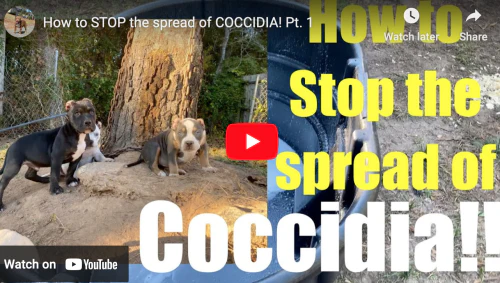Controlling Coccidia Spread: Effective Strategies for Animal Health
Introduction:
Coccidia, a prevalent parasitic infection in animals, necessitates proactive measures to contain its dissemination. Employing effective strategies is crucial to ensure the well-being of your livestock and maintain a productive farming environment.
1. Maintain Pristine Housing:
Regularly cleaning and disinfecting animal living spaces is paramount to minimize coccidia contamination. A clean environment is the first line of defense against this parasitic threat.
2. Isolate Infected Animals:
To prevent coccidia transmission, it’s essential to isolate infected animals from healthy ones. This quarantine approach safeguards the health of the entire herd.
3. Implement Rotational Grazing:
Implementing rotational grazing practices helps disrupt the coccidia life cycle, reducing exposure for grazing animals. This strategy is an effective tool in minimizing the risk of infection.
4. Prioritize Hygiene and Cleaning:
Enforce rigorous cleaning protocols, including handwashing and equipment sanitation, to curb coccidia transmission. Hygiene is a powerful weapon in the fight against this parasitic menace.
5. Administer Coccidiostats:
Utilize coccidiostat treatments, such as Toltrazuril, to control and prevent coccidia infections. These medications play a vital role in maintaining animal health.
6. Stress Management:
Reduce stressors that can trigger coccidiosis outbreaks, such as overcrowding. Stress management is essential to keep your animals healthy and resilient.
7. Regular Fecal Testing:
Conduct routine fecal testing to detect coccidia early, enabling prompt intervention. Timely identification is key to preventing the escalation of the infection.
8. Ensure Proper Nutrition:
Provide well-balanced diets to boost your animals’ immune systems against coccidia. Proper nutrition is a fundamental component of disease resistance.
9. Quarantine New Animals:
Isolate new animals before introducing them to the herd to prevent the introduction of diseases. This precautionary measure protects the overall health of your livestock.
10. Consult a Veterinarian:
Seek guidance from a veterinarian to create a comprehensive coccidia management plan tailored to your specific animal population. Professional advice is invaluable in disease prevention.
Conclusion:
Halting the spread of coccidia demands a holistic approach that encompasses hygiene, cleaning, medication, and proactive management. By diligently implementing these strategies, you can effectively control coccidia and ensure the health and productivity of your animals. Ultimately, this commitment to animal well-being leads to more successful and sustainable farming practices.
———————————————————————————————-




**This statement has not been evaluated by the Food and Drug Administration. This product is not intended to diagnose, treat, cure, or prevent any disease.**



